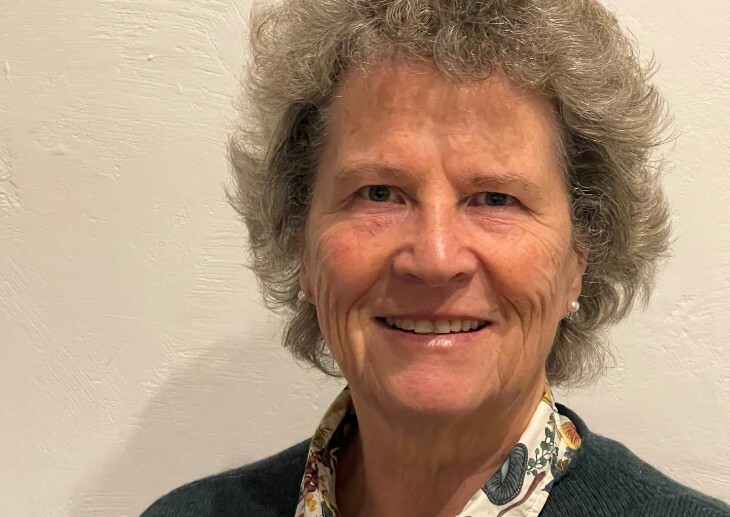The Government’s ambition is that the UK becomes a ‘world leader’ in public health. While the 10 year plan set out various ways of working towards this in the next decade, what is the situation now? How are ICBs incorporating public health into their strategies and how might their changing role impact this?
In this second article on public health in the system, Healthcare Leader explores how ICBs are working with public health to tackle wider determinants of health. Kathy Oxtoby reports
Public health input into ICBs across the country is ‘varied’, according to Sarah Smith, deputy director for improving population health at NHS West Yorkshire ICB.
While public health consultants are employed in ICBs across the country, ‘these roles often come with different remits, which leads to the variation in ability to support primary care,’ she says.
However, there are some ‘clear opportunities for public health to support primary care to improve population health outcomes’, she says.
Namely, through increasing population health capability, increasing access to good quality intelligence that will help prioritise care, and support with connecting with wider preventative services including those that impact on the determinants of health.
There are some places where there is already ‘really good practice’, including areas where directors of public health are part of ICSs, says Alice Wiseman, vice-president of the Association of Directors of Public Health (ADPH), the representative body for the professional views of directors of public health (DsPH) in the UK.
In NHS North East and North Cumbria ICB, the North East ADPH has nominated a director of public health to be on the board. There has been work on healthcare inequalities in primary care focused around GP practices that are working in the most disadvantaged parts of the region.
A tobacco dependency programme also aims to ensure that every patient who comes into hospital who is a smoker is provided with the nicotine replacement therapy of their choice during their stay, and their smoking cessation progress is followed up. And the directors of public health collaborate with the ICB’s clinical lead and programme manager.
Tailored collaboration
With approaches to public health, ‘one size doesn’t fit all, and you need to make sure public health initiatives are tailored to individual communities’, adds Ms Wiseman.
The partnerships that underpin ICBs are ‘vital to delivering the Government’s health mission’, says William Roberts, chief executive of the Royal Society for Public Health (RSPH). ‘Bringing together different parts of a local system to deliver vital services such as health checks, vaccinations, and reliable signposting is playing a pivotal part in keeping people healthy.’
Within ICBs there are ‘lots of different models and approaches to partnership working to tackle health inequalities and/or prevention and there are opportunities to learn from the areas that have made progress and to strengthen those collaborations’, says Phoebe Dunn, senior policy fellow at The Health Foundation.
ICBs ‘are there to deliver and shape services, but they also have a bigger role which is to connect with local government and support all those things that drive a population’s health beyond the delivery of services or the integration of care’, says David Buck, senior fellow in public health and health inequalities at The King’s Fund.
‘We see examples of newly created roles, such as directors of population health in ICBs, doing some really good things, through their commissioning and their role in the health and care service, and also through their partnership work, with directors of public health in local government in particular.’
ICBs halving their management costs and reshaping what they are there for, potentially has some positives for public health and population health, says Mr Buck.
‘This goes back to the new Model ICB Blueprint. ICBs are going to become more focused on commissioning responsibilities – buying, purchasing, planning, and understanding need. And there’s a big emphasis on population health management, analytical capability and understanding pathways of care, and a lot of that expertise is public health expertise.’
If ICBs ‘take up that mantle, you could see a much bigger use of public health people, expertise, data, insight, and principles’, he says. ‘You’re going to do less of the performance management, but you’re going to become really strategic.’
There is also ‘a positive story if, when ICBs get bigger, they map onto the new mayoral bodies – “combined authorities”’, he says. ‘English devolution is going to create more regional institutions, which are meant to deliver economic growth and more consistent coherent regional policy. If ICSs can map onto them similar sorts of boundaries, you could get more cohesion between economic and health policy at regional level.’
He gives the example of Greater Manchester, which following its early devolution deal ‘has focused strongly on population health and seen positive changes in key health outcomes for its population’.
Workforce challenges
Ms Smith says one of the national challenges for ICBs currently is the variation of public health capacity and capability on offer across the country.
However, ‘the explicit inclusion of healthcare public health competencies in the Model ICB Blueprint should seek to reduce this variation,’ she says.
Of the Model ICB Blueprint, which looks at the future role and functions of ICBs, including public health, Ms Wiseman says ADPH ‘welcomes the opportunity to strengthen that public health expertise’. However, there is a concern that, ‘if the ICB has a role in system leadership for population health, setting the evidence base and long term population health strategy, there is potential for duplication of the role of a director of public health at a local authority level’.
She says from a workforce perspective, there are already not enough people trained in public health and there are concerns around what the impact of recruiting public health professionals into the ICB, will be on the local authority that has the statutory duty.
‘To include the function of population health management in the ICB is right, but the reality of delivering that will take work so that we avoid duplication and maximise the value we all have in the system,’ says Ms Wiseman.
There are ‘challenges in competition between the NHS and local government’, adds Mr Buck. ‘Lots of consultants in public health are leaving to join the NHS because terms and conditions are better, so there’s a big competition for expertise and capability.’
If all of this expertise was ‘pulled out of local government and pulled into the NHS or ICBs’, that would be ‘very disruptive’, he says.
In the long term, what is needed is a strong workforce skills plan for public health expertise to match the reforms the Government is pushing through, both on the English devolution side and the ICB side, he says.
Another potential problem is that a lot of investment, energy and work have been around partnership in place. ICBs are going to do more commissioning, and if they do not focus on the relationship side, and become more technical institutions, they could potentially become isolated.
‘The risk is they become integrated islands,’ says Mr Buck.
‘Like all parts of the health and social care system, ICBs are feeling the impact of the immense pressure being placed on them,’ adds Mr Roberts.
‘In practice, this can mean that services stop being tailored to the needs of local communities, and instead are focused on meeting top-down targets. The point of local bodies – be that ICBs or a new structure – should be to have the flexibility and power to address the needs that are presenting in their local area. It will be critical to use the expertise of directors of public health as the local experts in ICBs,’ he says.
What more could ICBs be doing in public health?
Regarding what more RSPH would like to see ICBs doing in public health, Mr Roberts says: ‘We need to focus on what already exists rather than try and reinvent the wheel when it comes to ICBs. By building on the partnerships that already exist in the NHS and local government and expanding the definition of integrated care we can go a lot further.
‘For instance, social prescribing could be the tip of the iceberg. The potential difference that could be made is vast. Tailoring local strategies to the most pressing issues can be transformative. Schemes such as the vaccine promotion work in Redbridge show the potential of these approaches to arrest and even reverse worrying trends.’
He says this also means ICBs looking ‘beyond the boundaries of the NHS – or even formal public health’. ‘Services from local sports clubs and community groups to employers and the voluntary sector can and should play a role in improving health outcomes. ICBs should actively be reaching out to these organisations to use every lever available to promote healthier behaviours.’
Ms Wiseman adds that a challenge for ICBs is ‘recognising that promoting health and preventing illness is not delivered by healthcare alone’.
‘We’ve got an opportunity with ICBs to advocate together for some of the big things in relation to legislative changes that would make a difference to the health of the population, and to not always jump to an individual medical solution.’ However, this will require ‘a huge change in mindset’, she says.
With public health programmes often funded in a short-term way, she adds that ‘long term sustainable investment in prevention programmes’ is needed.
Primary care is ‘the neighbourhood building block of population health’
Sarah Smith, West Yorkshire ICB
As well as commissioning, ICBs also need to ensure they ‘value partnerships, what’s going on in local government, contribute to change, and influence beyond the NHS’s role, because roughly 80% of what determines their patients’ health happens beyond the NHS’, says Mr Buck.
It is important for ICBs to build on the expertise and insights that are already in local areas in public health teams, and to think about supporting general practices in more deprived areas of the country who are ‘facing bigger challenges in terms of funding and workforce’, says Ms Dunn.
ICBs also need to engage with the emerging strategic authorities and partner with other services, ‘spending the time building those relationships’, she says.
Given current capacity constraints, ‘equipping a broader range of system leaders with the population skills to commission based on need, will be key’, says Ms Smith. This includes fostering greater understanding of health equity, public health intelligence, and service design principles across clinical, managerial, and analytical teams. ‘I would like to see greater standardisation between ICBs regarding the public health specialist capacity in place to support this.’
Equally important is ‘the continued development of system intelligence functions that can provide actionable insights for commissioners, and the support for primary care colleagues to translate this into practice’, she says.
Primary care is ‘the neighbourhood building block of population health’, says Ms Smith. It plays ‘a fundamental role in understanding need at a hyper-local level and has the opportunity to tailor services to meet the needs of their local communities’.
‘Public health professionals can help primary care to do this by increasing understanding of public health principles, supporting access to good quality interventions and helping to connect with other factors that impact determinants of health,’ says Ms Smith.
What could public health in England look like in the future?
‘The Model ICB Blueprint states that ICBs exist to improve their population’s health and ensure access to consistently high-quality services. If we are to deliver on this, specialist healthcare public health input is essential,’ says Ms Smith.
The inclusion of public health principles in the Model ICB Blueprint are ‘really promising’, she says. ‘Aspects such as health needs assessment, population segmentation, predictive modelling, allocative efficiency and outcomes-based evaluation are the cornerstone of healthcare public health competencies.
‘I would therefore be looking for public health specialist input embedded in ICBs universally in future operating models. This will of course be alongside existing input from local authority public health teams and other public health national and regional bodies. Good models in the past have acted as system convenors to bring these public health leaders together to improve the outcomes for the population they collectively serve,’ says Ms Smith.
‘Going forward in the ICBs role as a strategic commissioner, ICBs will need to play a role in supporting Integrated Neighbourhood Health to build healthier, fairer and happier communities. This role will need to be supported by public health input to deliver good quality health needs assessments, advise on allocation of resource based on needs and provide good quality evidence to guide preventative interventions that will reduce the rising risk of people living with complex health conditions,’ she adds.
‘We won’t just feel benefits of the prevention shift downstream,’ says Mr Roberts. ‘We can realise the benefit in the here and now both in terms of budgets and pressure on clinical services. Prevention is one of the key principles of public health and we have that local expertise embedded in teams across the country with directors of public health – use it.’
He says prevention also ‘isn’t something that pays off in the distant future’. ‘A really strong flu vaccine campaign in the Autumn starts to pay for itself by Christmas. While the biggest savings can take time, that doesn’t mean you need a multi-year settlement to justify investing in prevention.’
There is also a wealth of ‘untapped expertise in the voluntary sector that can complement the expertise of ICBs and public health professionals’, he says. ‘They might not speak the same organisational language, but the outcomes they care about are the same as yours. Opening your doors to people who might not be usual partners has the potential to transform your services – reaching new groups and strengthening your ability to improve health outcomes.’




